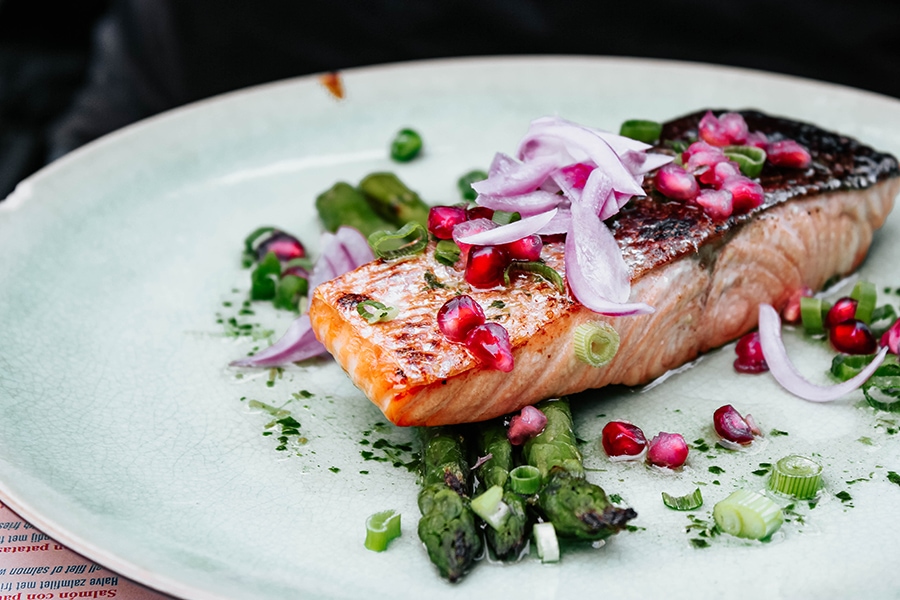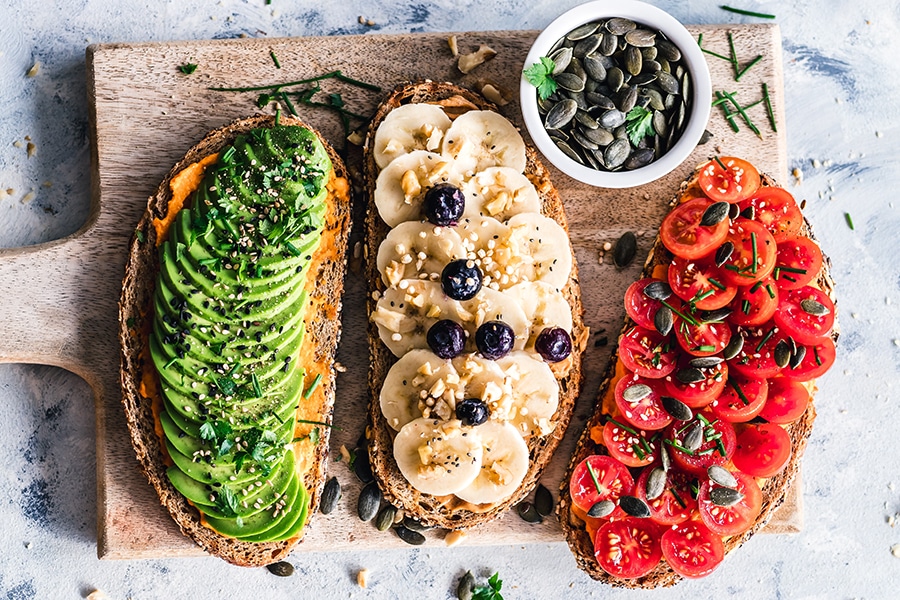Diets & Who Should Consider It

Common Questions
What Is The Mediterranean Diet?
The Mediterranean diet reflects the traditional eating patterns that are practiced by people who live in countries that surround the Mediterranean Sea. “Blue Zones” is a term that describes specific locations within the world whose populations tend to have longer lifespans. Regions such as Italy and Greece are both “Blue Zone” regions that follow a diet that the Mediterranean diet is based on. This diet includes consuming seafood, extra virgin olive oil, legumes, nuts, fruit, vegetables, and whole grains. Foods consumed in moderation include dairy, eggs, and poultry. Foods consumed in limited quantities include added sugars, refined grains, red meats, refined oils, and processed foods.

Research has shown that the Mediterranean diet has been associated with reducing diastolic and systolic blood pressure, improving insulin resistance, reducing the risk of chronic diseases, prolonging an individual’s lifespan, and improving the overall quality of life. The Mediterranean diet is low in saturated fats (pro-inflammatory). It promotes the consumption of unsaturated fats (anti-inflammatory) by emphasizing the regular consumption of omega-3 fatty acids through fatty fish and olive oil. This diet does not restrict calories, carbohydrates, protein, nor fat.
What Is The Keto Diet?
The keto diet was originally used as a method to treat epilepsy in children, though its popularity within the medical field began to decrease with the development of antiepileptic agents. Over time, as diet culture began to grow, the Ketogenic diet regained popularity for its ability to promote rapid weight loss.

The Keto Diet is a low-carbohydrate, moderate protein, and high-fat diet. The goal of the Ketogenic diet is to put the body into ketosis. Ketosis describes a metabolic state in which the body does not have enough carbohydrates to utilize as energy and therefore uses fat as an energy source. The goal of this diet is to limit the number of carbohydrates consumed so that the body will begin to produce ketones and go into ketosis. Naturally, the body prioritizes carbohydrates as a preferred source of energy. However, when the consumption of carbohydrates is inadequate, the body begins to rely on two metabolic processes known as gluconeogenesis and ketogenesis. As carbohydrate availability depletes and the body can no longer sustain itself through carbohydrates, it resorts to using ketones as energy through ketogenesis.
Some consideration for this diet is that there are limited studies that support the long-term benefits of following the keto diet. Potential short-term negative effects include dizziness, fatigue, nausea, vomiting, headaches, and constipation. Potential long-term effects include hypoproteinemia, kidney stones, nutrient deficiencies, and hepatic steatosis.
What Is The Vegan/Plant-Based Diet?
Plant-based diets have gained popularity in recent years, resulting in many people reducing or eliminating animal-sourced food products from their diet for either ecological, ethical, or health-related reasons. Some examples of plant-based diets include flexitarian, pescatarian, ovo-vegetarian, lacto-ovo-vegetarian, and vegan. Each plant-based diet differs in what is eliminated from the diet though each diet focuses on reducing the consumption of animal products. The flexitarian diet focuses on reducing the consumption of animal products but not eliminating them. It follows a vegetarian diet with the occasional consumption of meat and poultry. The pescatarian diet eliminates all meats and poultry but still includes seafood. The ovo-vegetarian diet eliminates all meats, dairy, and poultry though it still includes eggs. The lacto-ovo-vegetarian diet eliminates the consumption of meats and poultry, though it includes dairy and eggs. The vegan diet eliminates all animal-derived food products. Foods that are eliminated include meats, poultry, dairy, eggs, and honey.

People who follow a plant-based diet often consume meat and dairy alternatives instead of animal products. Plant-based protein sources include nuts, legumes, nut butters, avocados, and soy products. Plant-based diets differ from traditional diets because it does not require people to track their macronutrients (carbohydrates, protein, and fats), nor does it restrict calories. Nutrient deficiencies may occur when following a plant-based diet. Some essential nutrients that are not provided through plant sources include heme iron, vitamin B12, vitamin D3, and calcium. These nutrients can be included in a plant-based diet through consuming fortified foods or supplementation. Carbohydrates, fat, and protein should be consumed in adequate amounts while following a plant-based diet.

Shannon Palmer
Sports Nutritionist, Crossfit and Strong Woman Athlete
"If you exercise on purpose, you are an athlete. Prioritize your nutrition to improve your performance in the gym and everyday life."



